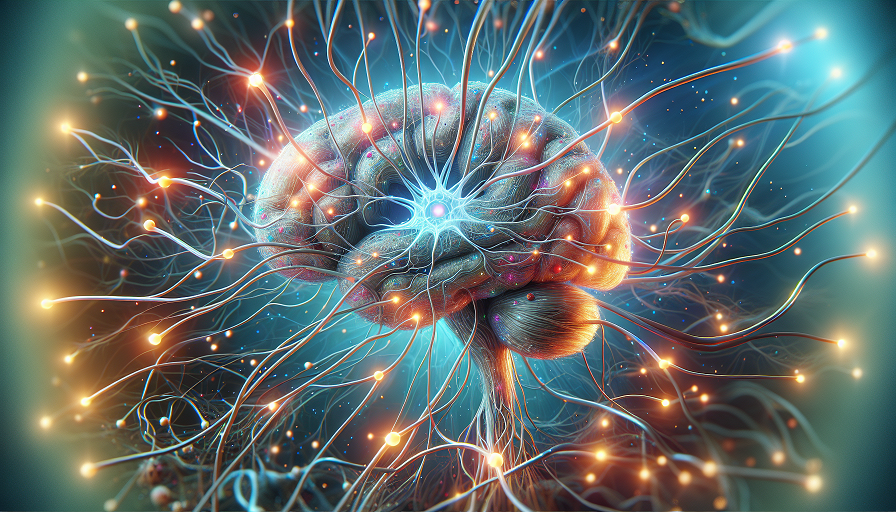
This is the story of how I overcame creative blocks and rediscovered my passion for composing music, thanks to nootropics and a fresh approach to creativity.
Contents
When the Music Stopped
Music has always been my language. Ever since I was a kid, I could sit at a piano and let my emotions flow through the keys. It wasn’t just a passion—it was a part of who I was. But somewhere along the way, the music started to fade. Deadlines, distractions, and the pressure to create something “perfect” took their toll. Composing, which once felt effortless, became an uphill battle.
I’d sit in front of my keyboard for hours, cycling through the same chords, hoping inspiration would strike. But instead of melodies, I felt a crushing sense of frustration. My mind was scattered, and every idea I came up with seemed stale or derivative. “What happened to me?” I wondered after yet another fruitless session. The thought of losing my connection to music was unbearable.
I knew I needed to make a change. But where would I even start?
Discovering a New Tune
One evening, while scrolling through a forum for musicians, I stumbled across a post titled, “Boost Your Creativity with Nootropics.” The term “nootropics” was new to me, but the idea of cognitive enhancers piqued my curiosity. The post was filled with testimonials from musicians, writers, and artists who had used nootropics to overcome creative blocks, improve focus, and find their flow.
I spent the next few hours diving into research. Ingredients like Lion’s Mane, known for supporting neural connections, and L-Theanine, which promotes calm focus, caught my attention. I also read about Bacopa Monnieri, a herb said to enhance memory and learning, and Rhodiola Rosea, which helps reduce mental fatigue. The science behind these supplements was compelling, and the idea of gaining a mental edge was too tempting to ignore.
After reading reviews and recommendations, I ordered a nootropic blend designed for creativity and focus. I decided to pair it with some changes to my routine, including setting aside dedicated time for uninterrupted composing sessions.
Starting the Experiment
The nootropics arrived a few days later. I started taking one capsule each morning with a glass of water and a healthy breakfast. I didn’t expect instant results, but I was hopeful. To maximize my chances of success, I created a new ritual: 30 minutes of mindful listening to my favorite compositions before starting my own work.
The first few days felt like business as usual. I still struggled to find inspiration, but I noticed a subtle difference—my mind wasn’t wandering as much. I could focus on a single task for longer periods, and I felt calmer even when I wasn’t producing anything noteworthy. It wasn’t a breakthrough, but it was progress.
The Creative Breakthrough
About two weeks into the experiment, everything changed. It was a rainy Saturday morning, and I’d set aside the day to work on a piece I’d been struggling with for months. I took my nootropic, made a cup of tea, and sat down at the keyboard. At first, I played aimlessly, letting my fingers wander over the keys. Then, something clicked.
A melody started forming in my mind—something haunting yet hopeful. I played it out, building harmonies and experimenting with different progressions. The ideas flowed effortlessly, as if they had been waiting for the right moment to emerge. I lost track of time as I worked, layering textures and refining each section until it felt just right.
By the end of the day, I had a fully composed piece. It wasn’t just good—it felt like a reflection of my truest self. For the first time in months, I felt proud of what I’d created.
Composing with Confidence
That breakthrough reignited my passion for composing. Over the next few weeks, I found myself entering a state of flow more often. The nootropics seemed to help me tap into my creativity while staying focused and grounded. Ideas that once felt out of reach now came more naturally, and I approached challenges with a new sense of curiosity.
One of the most rewarding moments came when I shared my new piece with a small audience at a local open mic night. The response was overwhelming. “That was beautiful,” one listener said. “It felt like it came straight from the heart.” Hearing those words reminded me why I started composing in the first place: to connect with people through music.
Beyond the creative breakthroughs, I noticed other changes as well. My confidence grew, not just in my music but in myself. I stopped doubting my abilities and started embracing the creative process, imperfections and all. Each piece I composed felt like a step forward, a reminder that I was capable of more than I’d imagined.
Scientific Insights and Research
The changes I experienced aren’t just anecdotal—they’re backed by science. Nootropics like Lion’s Mane have been shown to promote the production of nerve growth factor (NGF), which supports neuroplasticity. This allows the brain to form new connections and adapt to creative challenges more effectively.
L-Theanine, an amino acid found in tea, is known to promote a state of calm focus by increasing alpha brain wave activity. This mental state is associated with creativity, as it allows for free-flowing ideas without the interference of stress or overthinking. Rhodiola Rosea, another key ingredient, helps combat mental fatigue, making it easier to stay engaged during long composing sessions.
While nootropics aren’t a substitute for practice and dedication, they can provide the mental clarity and resilience needed to overcome creative blocks and achieve breakthroughs. Combined with intentional habits, they create a powerful foundation for sustained creativity and innovation.

